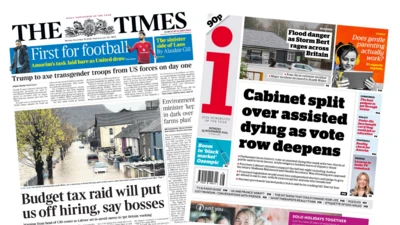We've updated our Privacy and Cookies Policy
We've made some important changes to our Privacy and Cookies Policy and we want you to know what this means for you and your data.
FGM 'not being taken seriously' in Northern Ireland
- Author, Marie-Louise Connolly
- Role, ҙуПуҙ«ГҪ News NI Health Correspondent
Female Genital Mutilation is not being taken seriously by Northern Ireland's politicians, a new report suggests.
There is no departmental body taking responsibility for the issue and no plan in place to implement multi-agency guidelines, the report says.
It was commissioned by the African and Caribbean Support Organisation Northern Ireland, in collaboration with community and FGM advocacy groups.
There is no specific data on the number of women and girls affected in NI.
But after charities and medical professionals raise concerns, FGM protection orders are now available.
'Absence of departmental body'
"FGM is considered as child abuse and a harmful practice with devastating health consequences for girls and women," said Joseph Ricketts of the African and Caribbean Support Organisation NI.
"It is imperative that information is distributed widely to enable those at risk to be supported and safeguards put in place to end such practices."
All health professionals, social workers and teachers in England and Wales are legally obliged to report cases of FGM in under-18s to the police, and professionals must refer suspected cases to local safeguarding teams.
Before the executive collapsed in January, it had shown a commitment towards eradicating FGM in Northern Ireland by publishing multi-agency guidelines for professionals responsible for safeguarding children and protecting adults from abuse.
Dr Fiona Bloomer, a social policy lecturer at Ulster University, said the guidelines represented significant progress, but lacked a clear implementation plan.
"The absence of a departmental body to lead on this suggested that this issue was not being taken seriously by government," she said.
FGM is a term given to all procedures that involve partial or total removal of the external female genitals or other injury to female genital organs where there is no medical reason.
It is usually carried out on girls under the age of 15, with most FGM performed on those under the age of five, according to Unicef.
The practice has been illegal in the UK since 1985 and further legislation in 2003 and 2005 made it an offence to arrange FGM outside the country for British citizens or permanent residents.
Top Stories
More to explore
Most read
Content is not available








